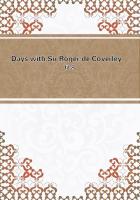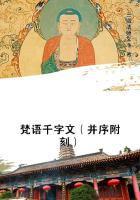He escaped only by offering to walk to Brand Whitlock, in Brussels, reporting to each officer he met on the way. His plan was approved, and as a hostage on parole he appeared before the American minister, who quickly established his identity as an American of good standing, to the satisfaction of the Germans.
In the following few months our trails were widely separated. I read of his arrest by German officers on the road to Mons; later Iread the story of his departure from Brussels by train to Holland--a trip which carried him through Louvain while the town still was burning; and still later I read that he was with the few lucky men who were in Rheims during one of the early bombardments that damaged the cathedral. By amazing luck, combined with a natural news sense which drew him instinctively to critical places at the psychological moment, he had been a witness of the two most widely featured stories of the early weeks of the war.
Arrested by the Germans in Belgium, and later by the French in France, he was convinced that the restrictions on correspondents were too great to permit of good work.
So he left the European war zone with the widely quoted remark:
"The day of the war correspondent is over."
And yet I was not surprised when, one evening, late in November of last year, he suddenly walked into the room in Salonika where William G. Shepherd, of the United Press, "Jimmy Hare," the veteran war photographer, and I had established ourselves several weeks before.
The hotel was jammed, and the city, with a normal capacity of about one hundred and seventy-five thousand, was struggling to accommodate at least a hundred thousand more. There was not a room to be had in any of the better hotels, and for several days we lodged Davis in our room, a vast chamber which formerly had been the main dining-room of the establishment, and which now was converted into a bedroom. There was room for a dozen men, if necessary, and whenever stranded Americans arrived and could find no hotel accommodations we simply rigged up emergency cots for their temporary use.
The weather in Salonika at this time, late November, was penetratingly cold. In the mornings the steam coils struggled feebly to dispel the chill in the room.
Early in the morning after Davis had arrived, we were aroused by the sound of violent splashing, accompanied by shuddering gasps, and we looked out from the snug warmth of our beds to see Davis standing in his portable bath-tub and drenching himself with ice-cold water. As an exhibition of courageous devotion to an established custom of life it was admirable, but I'm not sure that it was prudent.
For some reason, perhaps a defective circulation or a weakened heart, his system failed to react from these cold-water baths.
All through the days he complained of feeling chilled. He never seemed to get thoroughly warmed, and of us all he was the one who suffered most keenly from the cold. It was all the more surprising, for his appearance was always that of a man in the pink of athletic fitness--ruddy-faced, clear-eyed, and full of tireless energy.
On one occasion we returned from the French front in Serbia to Salonika in a box car lighted only by candles, bitterly cold, and frightfully exhausting. We were seven hours in travelling fifty-five miles, and we arrived at our destination at three o'clock in the morning. Several of the men contracted desperate colds, which clung to them for weeks. Davis was chilled through, and said that of all the cold he had ever experienced that which swept across the Macedonian plain from the Balkan highlands was the most penetrating. Even his heavy clothing could not afford him adequate protection.
When he was settled in his own room in our hotel he installed an oil-stove which burned beside him as he sat at his desk and wrote his stories. The room was like an oven, but even then he still complained of the cold.
When he left he gave us the stove, and when we left, some time later, it was presented to one of our doctor friends out in a British hospital, where I'm sure it is doing its best to thaw the Balkan chill out of sick and wounded soldiers.














